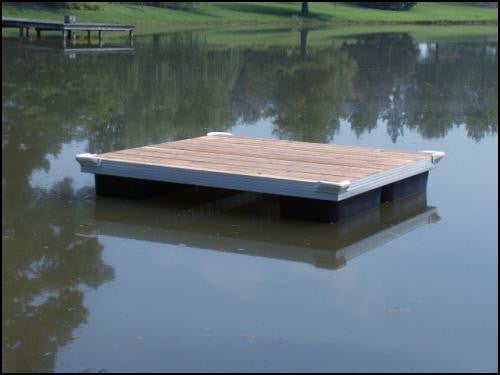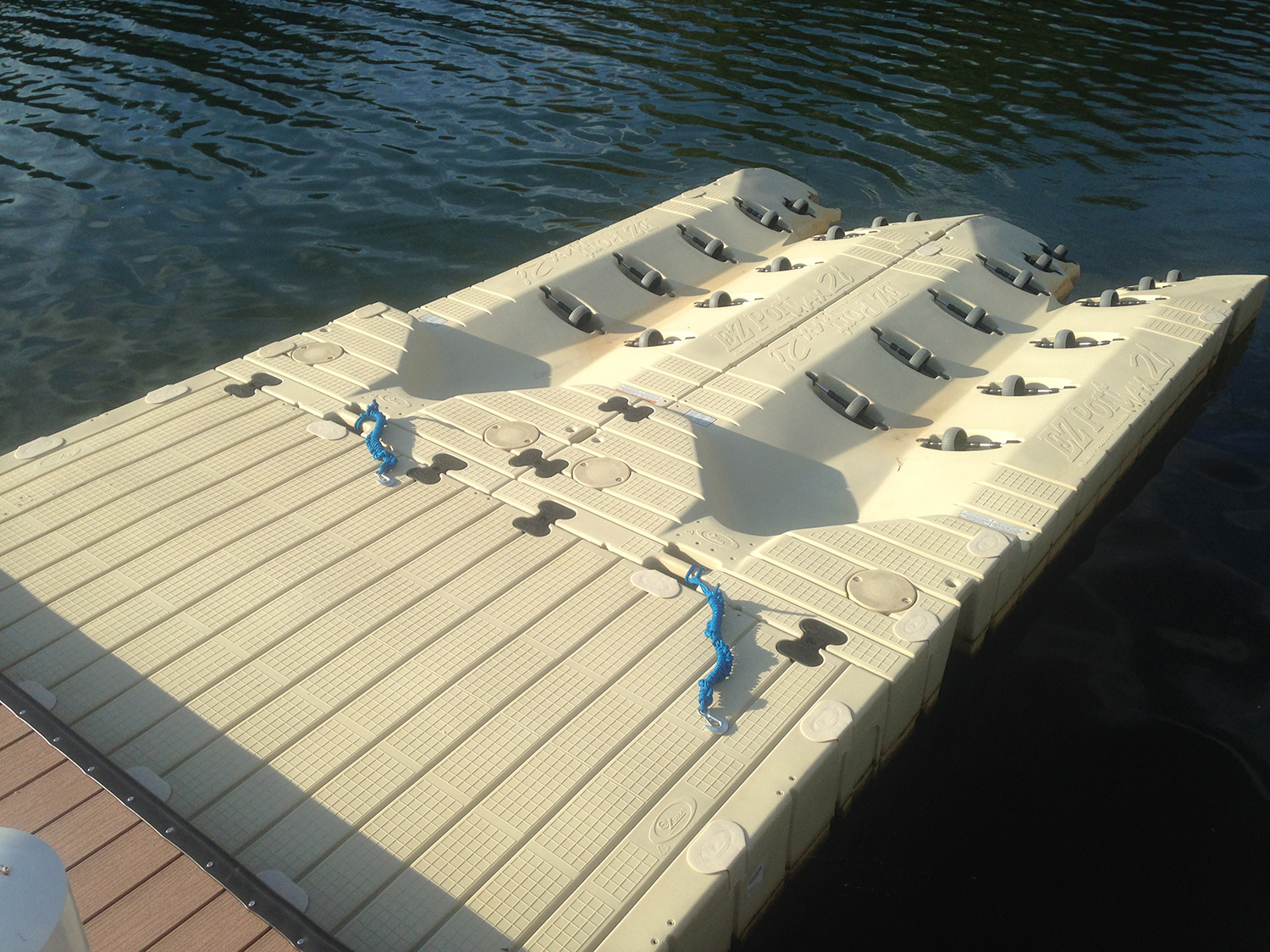Floating Docks: The Smart Choice for Modern Beachfront Living and Leisure
Wiki Article
Floating Docks: The Suitable Option for Versatile Water Accessibility
Floating docks existing an engaging service for a variety of water access requires, offering flexibility that transcends typical mooring alternatives. The modular nature of floating docks promotes customization, catering to details demands.Benefits of Floating Docks
Floating docks offer countless advantages that boost water gain access to for various applications. Their capacity to fall and climb with transforming water degrees makes them particularly useful in atmospheres with varying tides or seasonal variations. This versatility guarantees that vessels can conveniently anchor without worry for the water's depth, giving a reliable platform for recreational, commercial, and industrial uses.Additionally, floating docks are often constructed from sturdy materials that withstand deterioration, making them suitable for lasting use in marine atmospheres. Their installment is generally much less intrusive than standard fixed docks, minimizing the ecological impact and assisting in quicker release (floating dock builder). This adaptability allows for simpler relocation or reconfiguration according to individual requirements or environmental modifications
Security is one more essential benefit; floating docks can provide stable access for individuals boarding or disembarking from watercrafts and lower the threat of accidents connected with unsteady surfaces. They can be developed to accommodate a variety of devices, such as cleats and fenders, enhancing performance. Generally, floating docks represent an effective solution for improving water accessibility throughout diverse industries while advertising safety and security and environmental sustainability.

Kinds Of Floating Docks
Different sorts of floating docks deal with different needs and atmospheres, each made with particular features to optimize performance. One of the most usual kinds include modular docks, which contain interlacing sections that enable very easy personalization and development. These docks are suitable for recreational use, as they can be customized to fit numerous boat sizes and water conditions.An additional popular option is the stationary floating dock, which stays secured in position but drifts with transforming water degrees. floating docks. This type is specifically fit for locations with marginal tidal variations, providing steady access for fishing or swimming. Furthermore, there are drive-on docks, which feature a sloped style that enables watercrafts to conveniently drive on and off, making them ideal for personal boat and smaller sized vessels
For business applications, sturdy floating docks are readily available, created from reinforced materials to endure considerable tons and harsh marine environments. Lastly, green floating docks use sustainable products and layouts to lessen ecological effect, commonly including attributes like vegetation to support regional wild animals. Understanding the numerous kinds of floating docks makes certain that users can select one of the most appropriate service for their specific requirements.
Installment Process Overview
An effective setup of floating docks requires mindful planning and focus to detail to make certain optimum efficiency and safety. The preliminary step entails evaluating the site problems, consisting of water depth, present, and potential barriers. This assessment educates the selection of the ideal dock materials and layout tailored to the details atmosphere.Following, acquiring essential licenses is crucial, as several jurisdictions have regulations regarding construction on water bodies. When permissions are protected, the installment can proceed. Begin by preparing the structure, which may include anchoring systems or pilings customized to the dock kind and local problems.
Adhering to the foundation configuration, construct the dock sections according to maker requirements. Make sure that all parts are firmly fastened and aligned to stand up to ecological stresses. Setting the dock in the marked area, ensuring it is level and steady.

Upkeep Tips and Ideal Practices
After the installment process is complete, ongoing upkeep plays an essential function in making certain the durability and capability of floating docks. Normal examinations need to be carried out to determine any kind of indications of wear, wear and tear, or damages - floating dock company. Check for any loosened fittings, splits, or separation in the dock areas, as these can jeopardize architectural stabilityCleaning up the dock is necessary to get rid of particles, algae, and other accumulation that can influence its look and security. Make use of a gentle stress wash occasionally to preserve cleanliness without triggering damage to the surface. Additionally, applying a safety sealant every couple of years can help improve longevity and stand up to environmental wear.
Take note of the mooring lines and anchors, ensuring they are free and safe and secure from rust. Change any abject parts quickly to stay clear of hazards. Seasonal modifications might additionally be required; throughout severe weather, rearranging or enhancing the dock can avoid damages.
Applications for Floating Docks
Floating docks offer a multitude of applications, satisfying both leisure and commercial requirements. In entertainment setups, they offer seamless access to rivers for activities such as boating, angling, and swimming. Their flexible nature enables installation in varying water levels, making sure secure and stable accessibility no matter tidal variations.Readily, floating docks are indispensable for marinas and waterside services. They facilitate the docking of vessels, enabling efficient unloading and loading of goods. Their modular design enables easy expansion or reconfiguration to accommodate changing business needs, making them ideal for boat services, excursion procedures, or fishing charters.
Furthermore, floating docks are made use of in ecological applications such as water research study and habitat remediation. They can offer as systems for clinical researches, monitoring water top quality, or great post to read performing wildlife surveys without troubling sensitive environments.
In industrial contexts, floating docks are used in building projects, providing access to hard-to-reach areas for equipment and employees. Their versatility, sturdiness, and marginal influence on the setting make them an optimum option for a large range of applications, boosting both performance and accessibility in different water-based look at here atmospheres.
Final Thought
In verdict, floating docks stand for an optimal option for varied water access needs, owing to their versatility, longevity, and modular layout. Floating docks serve as a beneficial asset for leisure, business, and ecological tasks, making sure reputable accessibility to waterways and advertising sustainable methods in marine environments.Floating docks present an engaging remedy for a variety of water gain access to needs, using versatility that transcends standard mooring choices.Floating docks offer many advantages that improve water access for different applications. On the whole, floating docks stand for an effective solution for boosting water accessibility throughout varied markets while promoting security and ecological sustainability.
An additional prominent choice is the stationary floating dock, which remains anchored in area however drifts with altering water levels.In conclusion, floating docks stand for an ideal remedy for diverse water accessibility needs, owing to their have a peek here versatility, sturdiness, and modular design.
Report this wiki page